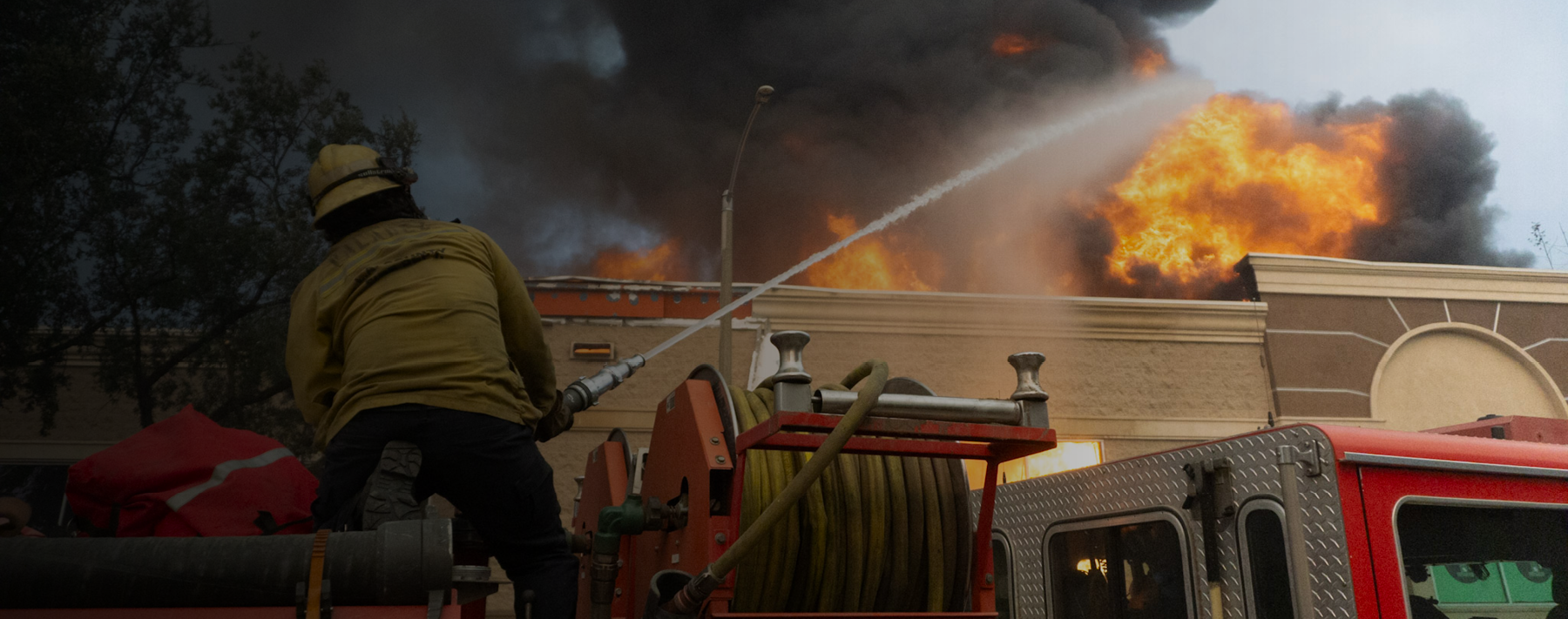When a car has engine problems, a warning light comes on. Similarly, when something goes wrong with an airplane’s engine, control systems or landing gear, a visual alert notifies the crew. There is no such thing as a good time for a warning light to signal a problem. Having a trip interrupted by dashboard warning lights is an inconvenience at best and a downright emergency at worst. But at least the lights are there to help signal that action should be taken.
I consider myself a very optimistic person, but I will say this: There is a warning light on. Most everyone I speak to feels like something seems wrong or out of place—locally, nationally and globally. Many find it hard to put their finger on it, but their instincts are telling them “WARNING.”
You don’t have to look far to see how upside-down we have become. We are on the verge of a tumultuous time, and that feeling in your gut is telling you to get prepared, both professionally and personally.
Just in the past few years, we’ve experienced crises ranging from COVID to political strife, war to assassination attempts, cyber breakdowns to power grabs. Unless you are completely oblivious, it should be very apparent that a warning light is on. It might even be blinking.
Preparing for Impact
Imagine yourself for a moment, sitting in a cramped airline seat with your tiny bag of pretzels when the pilot announces, “Ladies and gentlemen, return to your seats and fasten your seat belts. We have some turbulence ahead.” If this happened, you’d prepare for a crash landing, stowing your belongings and reviewing the emergency procedures card. You’d do whatever you could to maximize your chances of surviving.
Brothers and sisters in the fire service, we’ve got turbulence ahead. Please consider this your captain’s warning.
Assuming you haven’t been living under a rock, you know there’s a heated election coming up. We’re seeing people taking sides, lines being drawn. Extremists from all aspects of the political spectrum are making plans, behaving badly. And of course, when one group acts uncivil, that serves as a green light for others to ratchet up the rhetoric and violence. In many of our cities, we’re seeing spikes in crime, assaults and even murder.
We’re also seeing an increase in violence toward firefighters and other public safety personnel. It’s getting bad, folks, and it’s likely to get worse.
Lexipol’s fire/rescue policy management solution: LEARN MORE
Maintaining Civility
As a fire service leader, it’s up to you to set the tone of discourse in your firehouse(s). First, don’t assume everyone in your crew thinks and believes the same things you do. In some cases, a simple warning to “tone it down” or “keep it civil” might be enough. In other situations, you may need to instruct the members of your crew to avoid overtly political discussions in the workplace. You know your people best, so use your best judgment regarding what the message from the top needs to be.
Disrespectful behavior from others can be unnerving and upsetting. Before you witness behavior or hear discussions that are over the line in terms of propriety, decide right now how you will handle that. Similarly, if someone has been disrespectful to you, you may be left wondering how to respond—or if you should respond at all. Take some time to assess what happened and figure out if the other person really intended to be disrespectful.
When you feel the need to address uncivil behavior, first take some time to calm down and think about how to react. Be empathetic, but don’t be afraid to stand up for yourself or others if you need to. As a leader in the fire service, you have the responsibility to calm the turbulence if and help everyone act respectfully and courteously.
Getting Your House in Order
It’s almost impossible to look into the near future and not see the very real possibility of civil unrest, international conflict, a follow-on pandemic or other unthinkable crises. The time is now to prepare. Talk to your command staff about scenarios that are within the realm of possibility in your area. Review your agency’s policies regarding the best way to respond to those situations, with contingencies for both the likely and unlikely. Make a plan to train your teams so everyone knows what to do if a worst-case scenario actually plays out.
Remember the supply chain difficulties of 2020 and 2021? They caught a lot of agencies off guard, leaving many shorthanded. Also, there’s no reason to think they can’t happen again. Take time now to inventory your equipment and supplies so you have what you need as we head deeper into the second half of the year. Prepare now to have extra food, water, medical supplies and other items on hand. I’m not saying to buy up stocks of hand sanitizer and toilet paper, but following the old adage that “two is one and one is none” can ensure you won’t be caught off guard.
As you prepare your agency for these possibilities, it’s a good idea to do the same at home. You’ll probably want to counsel the members of your crew to do the same.
Brothers and sisters in the fire service, we’ve got turbulence ahead. Please consider this your captain’s warning.
Keep the Faith
During the first year of the Revolutionary War, Washington’s army shrank from 23,000 soldiers in August 1776 to fewer than 5,000 in December. Men were losing faith in the cause of freedom, abandoning their units and fleeing back to the comforts of home. With the hopes of the struggling nation in very real danger, Thomas Paine penned his famous pamphlet, “The American Crisis,” in which he warned: “These are the times that try men’s souls.”
Friends, in the coming months and years you will likely face times that test your faith. These tests may come in many forms. Some may be profoundly personal — like sickness, loss or difficult decisions. Some will be professional, as you find yourself dealing with situations you never thought you’d encounter when you started your firefighting career.
Regardless of your belief system, this is a great time to strengthen your relationships with family, friends and community. Get to know your neighbors. Get active in organizations that promote good. Be a better citizen.
During challenges like these, many people turn to their faith to help see them through. Regardless of what religious practices you follow, lean on past experiences when you felt someone or something guiding you. Personally, I look for God’s intervention in my life. I find that reflecting on these moments can build trust and renew my faith, especially when it seems as if everything is going wrong. It’s important to focus on the things you can influence or control. Doing so reminds you that while you are a small force in a big world, living your life in an honorable manner does make a difference, and staying true to your values can help you move through tough situations.
Certainty in Uncertainty
Friends in the fire service, I could be completely wrong about what lies ahead. I hope I am. But I suspect I’m not. And there are many who agree with me.
I’m not saying these things to spark fear and anxiety, but rather to call attention to the worries many of us are already feeling. Though some degree of anxiety is normal and even necessary, anxiety signals us that something is awry or might need our attention. It’s another kind of warning light, and the best way to deal with it is to be prepared.



